Feeling itchy and scratchy after being eaten alive by hungry insects? These chemical-free, all-natural remedies can help—fast!
10 Home Remedies for Bug Bites That Actually Work
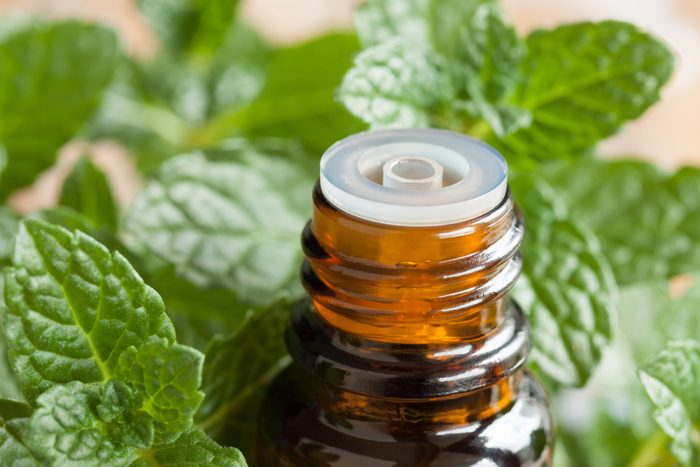 Madeleine_Steinbach/Getty Images
Madeleine_Steinbach/Getty Images
Peppermint essential oil
This delectable essential oil doubles as a bug-bite soother. The cooling sensation it provides to the skin counteracts the burning, stinging, and itching. Plus, peppermint is both anti-inflammatory and antimicrobial, so it may help reduce infection, says David Friedman, ND, a doctor of naturopathy and a clinical nutritionist. Incidentally, peppermint can also prevent bug bites in the first place. “Mosquitoes, fleas, flies, wasps, and spiders hate the smell of peppermint oil,” says Dr. Friedman.
Regardless of whether you’re using peppermint oil as a home remedy for bug bites or as a preventive measure, Dr. Friedman advises against applying it directly to the skin because it may cause burning and stinging. Instead, he suggests mixing it with a carrier oil like jojoba or coconut. “Use five drops of peppermint oil per ounce of carrier oil before applying it to your skin,” he says. “You can also make a diluted spray by filling a spray bottle with water: Mix three drops of essential oil with four drops of carrier oil per ounce of water.”
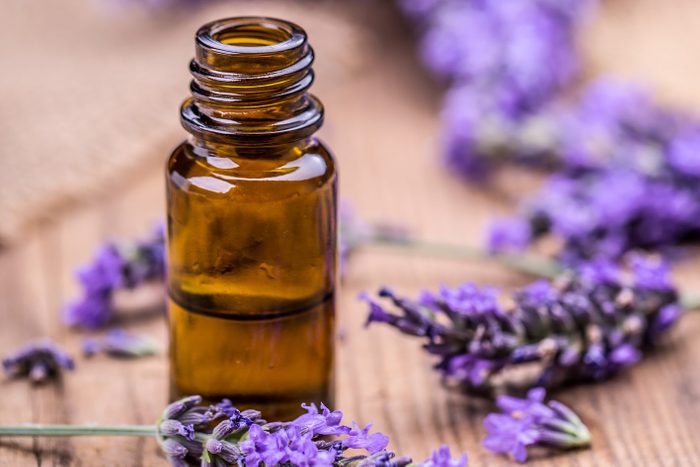 grafvision/Getty Images
grafvision/Getty Images
Lavender essential oil
If you’ve ever taken a big whiff of lavender, you know instantly calming it can be. Well, it’s equally calming on your inflamed, irritated, bug-bitten skin. “Renowned for its ability to soothe inflammatory skin conditions—including minor burns, wounds, and acne—lavender essential oil can help reduce itching and inflammation within minutes of application,” says Melanie St. Ours, a clinical herbalist and the author of The Simple Guide to Natural Health. She suggests choosing a brand that’s made of 100 percent French lavender grown at high altitudes, like this formulation from Orchid & Temple. Apply one to two drops directly to the affected area, and reapply as needed. By the way, in case you’ve ever wondered, here’s why you never see mosquitoes at Disney World.
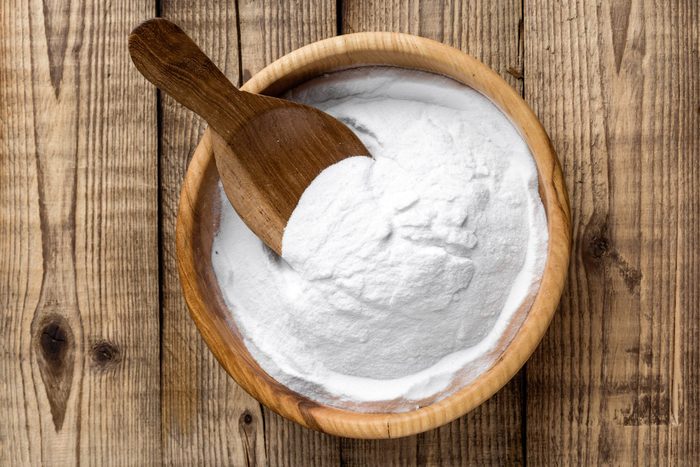 ivandzyuba/Getty Images
ivandzyuba/Getty Images
Baking soda
This home remedy for bug bites is great for both adults and children since baking soda is so gentle. A true multitasker, baking soda doesn’t just work its magic in your meals—it can also relieve irritation and itchiness. To make a paste, Toronto-based naturopathic doctor Olivia Rose, ND, recommends combining 1 tablespoon of baking soda with water. “Add enough water to form a paste, and apply to the bug bite, letting it dry before removing with a cool washcloth,” she says. “If you happen to be covered in bites, add 1 cup of baking soda to a neutral temperature bath.”
 Madeleine_Steinbach/Getty Images
Madeleine_Steinbach/Getty Images
Echinacea liquid extract
This natural remedy has been a staple in people’s medicine cabinets for centuries—and for good reason. Echinacea is a liquid extract from the echinacea plant, which is part of the daisy family. It’s been used for everything from treating colds and soothing sore throats to stopping infections in their tracks. “If you notice that the area around your bite is becoming red, hard, and swollen, apply echinacea tincture to the entire affected area every hour until the swelling is gone,” says St. Ours. “Apply the tincture liberally by patting it into your skin with your fingertips, using at least one-fourth of a teaspoon per application. If the swelling does not decrease significantly after 24 hours of consistent use, or if you start to run a fever at any time, she recommends calling your doctor immediately.
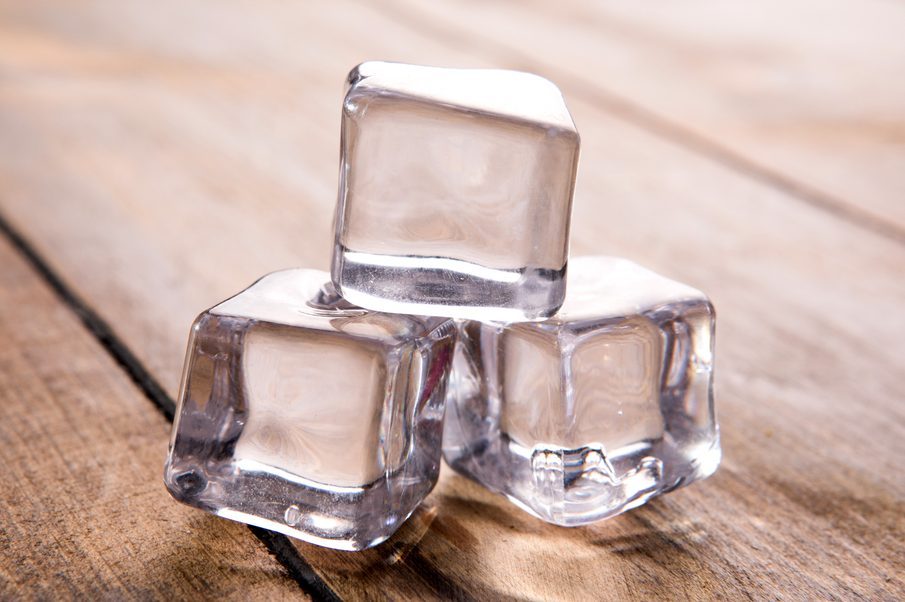 avs/Shutterstock
avs/Shutterstock
Ice
Ice can be oh-so-soothing for a variety of things that ail you—bug bites included. St. Ours explains that this simple remedy works on itching, swelling, and overall discomfort for two reasons. “First, your sensory nerves can only communicate a certain amount of information to your brain at one time, so, when you apply the ice cube, the nerves that were telling your brain, ‘This is itchy!’ change their tune and start telling your brain, ‘This is cold!'” she says. “Second, the coldness reduces local swelling and inflammation.”
Using a gel-filled ice pack, like this well-reviewed option by Rester’s Choice, keep things less messy and melty. That said, you may want to place a cloth between your pack and the skin for added comfort, and you’ll only want to apply it for a few minutes at a time.
 Nikolay_Donetsk/Getty Images
Nikolay_Donetsk/Getty Images
Plantain leaves
Even though it shares the same name with the starchy fruit similar to a banana, the plantain that can help with bug bites is an entirely different plant, explains St. Ours. “It’s a common weed that grows well in packed soil, which means it’s often easy to find at playgrounds, hiking trails, and even growing alongside the sidewalk in cities!” she says. “You can recognize plantain species by the vertical veins that run along the leaves, which are organized like a circle of ‘rays’ emanating from a central point. This plant has impressive wound-healing abilities, which is why it’s an ingredient used in many healing salves and ointments.”
Dr. Friedman recommends making a paste using plantain leaves and bentonite clay or activated charcoal with water and placing it directly on the bug bite for immediate relief. “If you don’t have these other ingredients you can also put 1/2 cup of dried plantain leaves in a blender or coffee grinder with enough distilled water to make a paste,” he says. “You can also substitute apple cider vinegar in place of water and grind until it’s a thick consistency (not too watery) before putting it directly on the skin.” Find out the reasons why you should start taking apple cider vinegar bath.
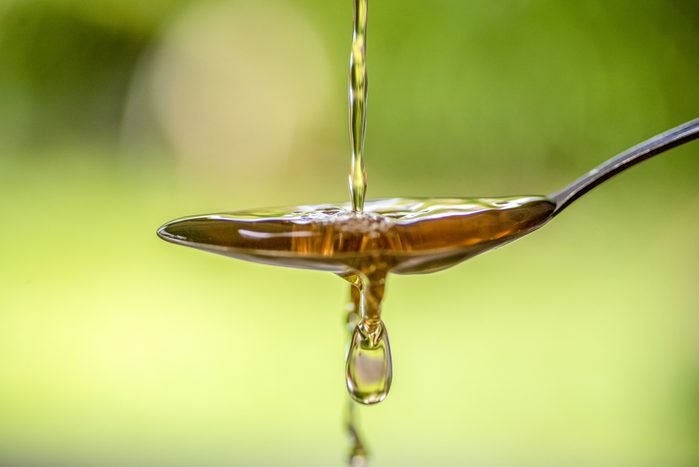 boonchai wedmakawand/Getty Images
boonchai wedmakawand/Getty Images
Vinegar
You may catch more flies with honey, but vinegar can also do the trick! “Vinegar can reduce stinging or burning sensations and is a natural disinfectant, especially if you’ve been scratching a bite,” says Bernard Buttone, manager and associate certified entomologist at Triangle Pest Control. He recommends soaking a washcloth or absorbent paper towel in cold water and vinegar and applying it to the bite for a few minutes. “If you’ve been a mosquito feast and you have multiple bites, dilute 2 cups of vinegar in a lukewarm bath and soak for 15 to 20 minutes,” he adds.
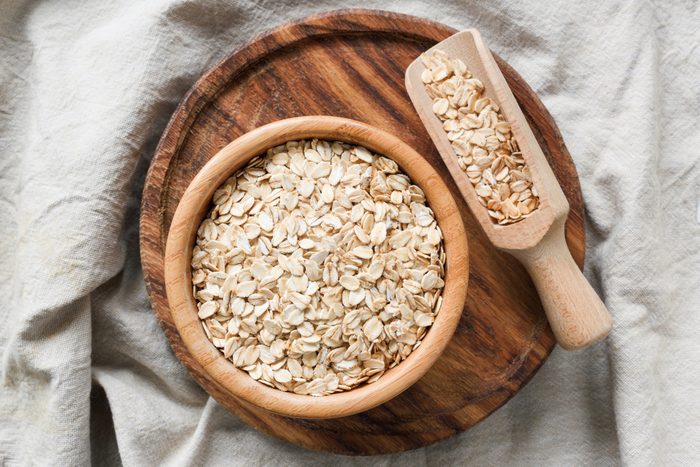 Arx0nt/Getty Images
Arx0nt/Getty Images
Oatmeal
You probably have this ingredient somewhere in your pantry, but you may never have thought to use it on your body. As it turns out, oatmeal provides healing, moisturizing, and antioxidant properties for the skin, making it one of the best home remedies for bug bites. “Oatmeal can relieve itching and reduce swelling, which is exactly why you need it after getting bit or stung by something,” says Amy Lawhorne, vice president for the pest control company Mosquito Squad. “Simply mix oatmeal with water to create a paste and apply it directly to the bite,” she says. “Let it sit for 10 to 15 minutes, and then wipe it off.”
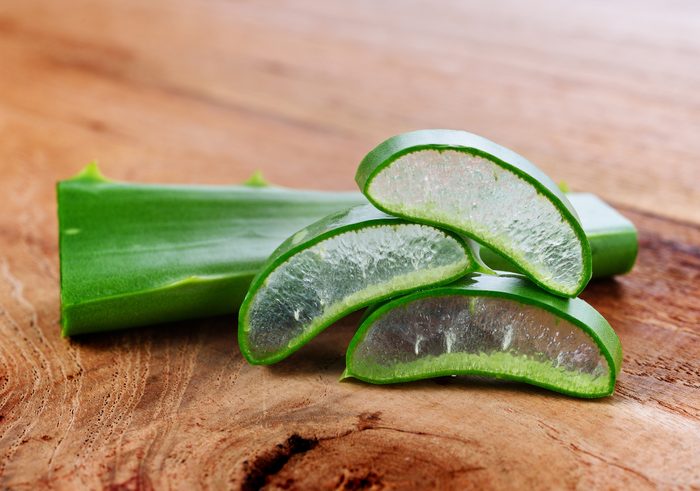 nipapornnan/Getty Images
nipapornnan/Getty Images
Aloe vera
Aloe is well-known for soothing sunburns, but few people realize that it can also ease the sting and itch of bug bites. “When applied directly to the bite, the cooling action of the aloe vera gel will help shrink swelling and reduce the itch,” says Dr. Rose. If you have a mature aloe vera plant at home, that’s a bonus, but you can also purchase aloe vera gel, which works equally well—and is an especially good idea if you have a pet parent, since aloe ranks among the houseplants that are toxic to cats and dogs.
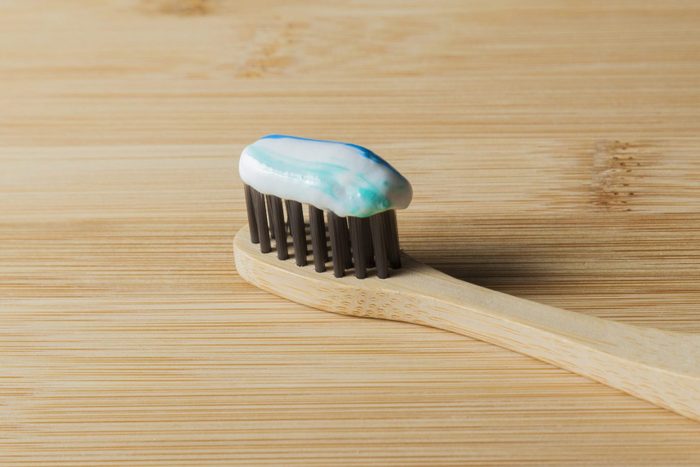 GideoniJunior/Getty Images
GideoniJunior/Getty Images




















